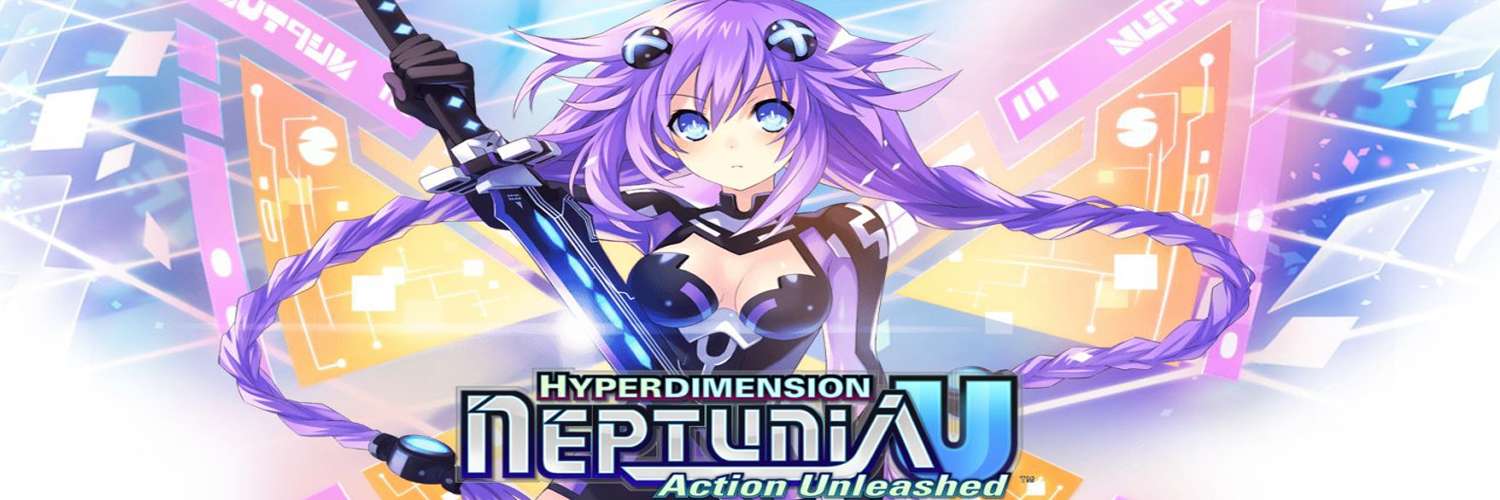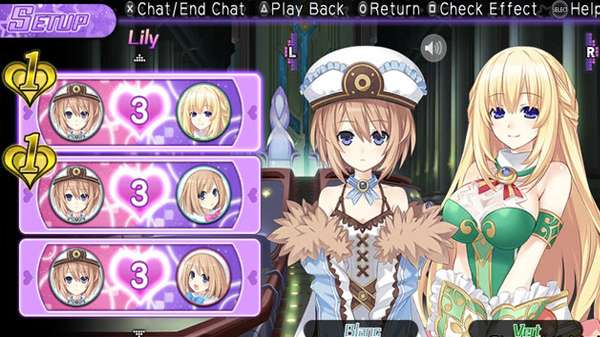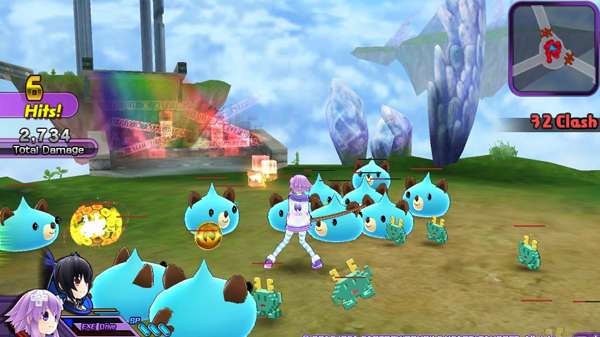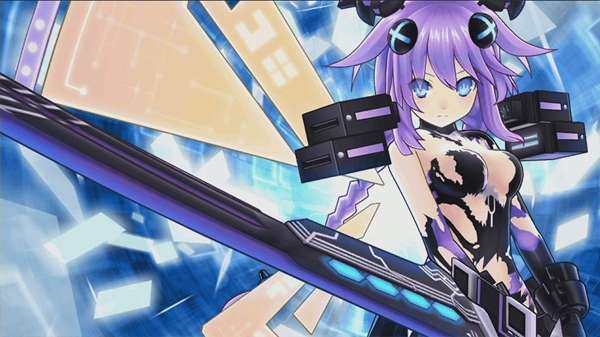
Hyperdimension Neptunia U: Action Unleashed Vita Review
As much as it may pain fans of classic RPGs like Final Fantasy and Dragon Quest, Compile Heart’s Neptunia series continues to see an almost uncountable number of releases and spinoffs to the point that the company has to start farming out the games to other developers. As much as it may upset people looking for new RPG experiences that don’t pander endlessly with moe character designs and various uncomfortable fanservice situations, there’s no denying that Neptunia continues to be a successful franchise that branches itself out to more and more consoles.
Which is probably why someone over at Compile Heart thought it would be amusing to call their next game Hyperdimension Neptuna U: Action Unleashed while releasing it on any other console except the Wii U. They probably continued to get a good laugh that they managed to beat Square Enix’s release of Dragon Quest Heroes in order to get out their own Musou-inspired spin-off, which is precisely what Neptunia U is. Combining the CPU cast of the first two Neptunia games along with a couple of newcomers, Action Unleashed takes a break from the turn-based battles of its predecessors in order to create a button-mashing action game on the Playstation Vita.

The story of Neptunia U claims to be non-canonical to the rest of the series, which seems to be a running joke at this point and makes the list of canonical titles shorter and shorter. The CPU Goddess Neptune and her friends/rivals are approached by a journalist named Dengekiko who wishes to write an article about the girls as they take on the requests by their adoring fans. Meanwhile, another journalist named Famitsu approaches the CPU Candidates, who are comprised of the younger siblings of Neptune and the others to also engage in quests. For those unaware, the two journalists are named after two of Japan’s most famous gaming magazines, Famitsu and Dengeki, adding yet another layer of videogame personifications which popularized this series. Eventually, both sides team up to tackle the numerous amounts of quests available while strengthening their bonds of friendship. These bouts of interaction comprise mostly of late-night videogame sessions, body comparisons, and occasionally suggestive yuri shipping. It’s every bit as moe as the other Neptune games, which means Compile Heart continues to pander to its core audience regardless of the gameplay changes each spinoff brings.
Yet even genuine Neptunia fans may find the excessive amount of dialog-heavy cutscenes to be too much. Characters will drone on and on for extended periods of time, with some cutscenes actually having to stop and load midway to add more characters and conversation. This wouldn’t be so bad if any of the characters had anything meaningful to say, or at least funny. In the immortal words of Homer Simpsons, they take forever to say nothing. While waves of dialog can be surfed over thanks to a single button press, that skip-all option carries over to all preceding cutscenes until it is disabled, which can be jarring for anyone who chooses to skip a conversation before a mission, complete the mission, and then proceed to the next cutscene only to have the dialog fast-forwarding from the start.

It may not be entirely accurate to say that there is as much gameplay as there is dialog, but Neptunia U certainly isn’t lacking in quest quantity; dozens of objectives are parsed out at a time in the world map, allowing players to instantly jump to a variety of locations each with their own objectives. In typical Musou fashion, most objectives consist of defeating a certain number of enemies, enemy types, or a boss in order to succeed. In a decision to make these action skirmishes more compact, each quest puts players right where they need to be in the area while sectioning off all other paths, effectively turning each stage into a short enemy room that needs to be cleared out. From here on out, it’s typical Musou button-mashing, with two buttons serving as the attack buttons that can then be combined into all sorts of various attacks. There are also special attacks which run on a separate meter that fills up by defeating enemies or collecting nearby items, as well as an EXE gauge that allows the characters to transform into their more powerful CPU forms for a limited time. The game also allows players to set up teams of two, which can then be switched around at any time during each quest.
For developing this game, Compile Heart turned to Tamsoft, who are best known for their Senran Kagura series. This, of course, means many more jiggle physics in addition to ripped clothing during battle (the characters remarking about the feature in fourth-wall fashion does not exactly pardon it). In an attempt to justify the indignation, the characters also gain a both in critical damage once their undergarments are exposed. In any event, the game does benefit from Tamsoft’s penchant for creating visually competent graphics on the Vita, including an airtight framerate that never hitches no matter how many enemies fill up the screen. That said, the overall action isn’t quite up to the current standards of recent Musou titles like Hyrule Warriors; enemies offer no real resistance beyond the occasional attack, and it takes a bit too long to gain new abilities to spice up the monotony. There are also certain types of quests that feature an unclear objective, and in order to gain a hint for that objective you must first enter the quest, abandon or fail it, and then wade through more pointless dialog until you are given the information you need (such as defeating an enemy with a certain team, or utilizing a certain attack). This feature is more of a pointless distraction that only adds to the monotony rather than break from it.

In the end, Hyperdimension Neptunia U: Action Unleashed is a decent button-masher built around the polarizing Neptunia brand, with an overabundance of pointless banter that even the most hardcore fans may grow weary of. Performance-wise, it’s a much prettier and more stable Musou game than most, and looks especially good when played on a Playstation TV, but the gameplay is best enjoyed in short bursts before the repetition risks players into boredom.
